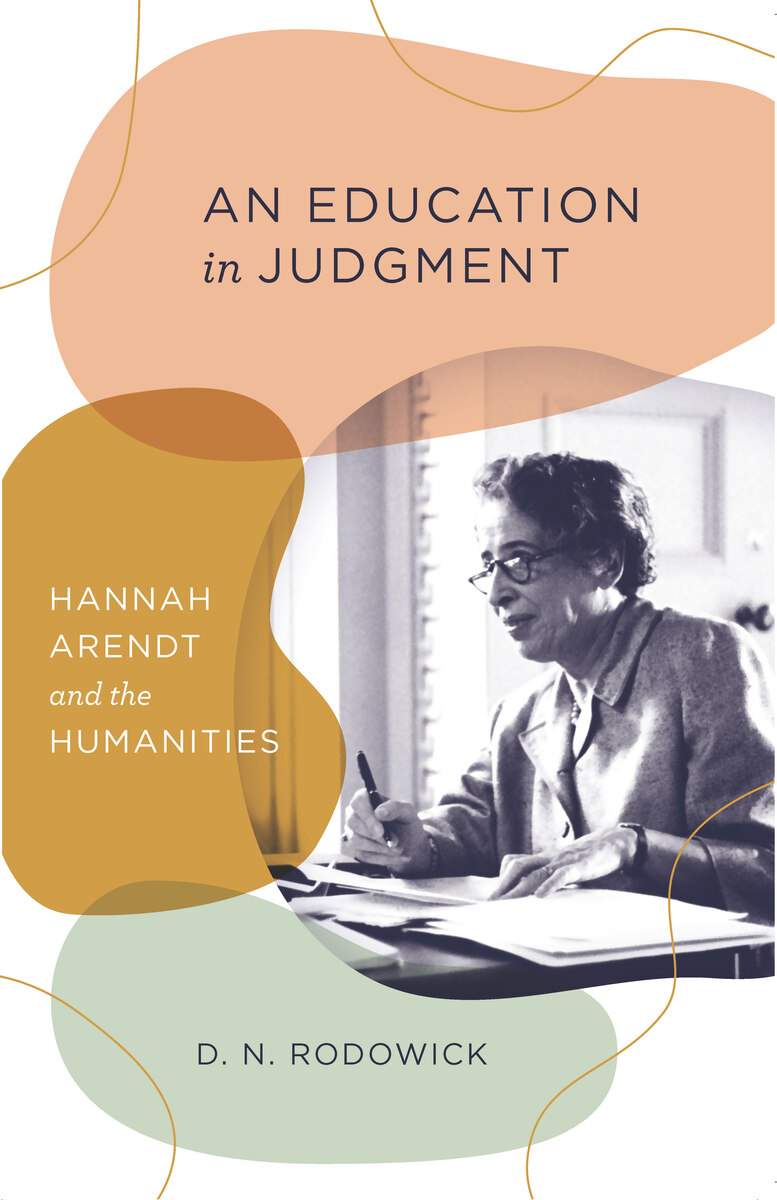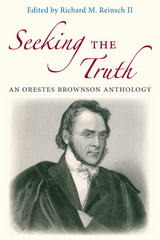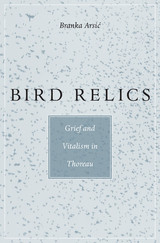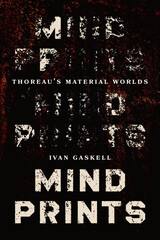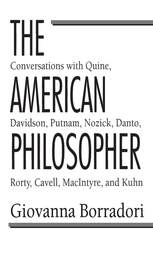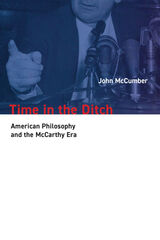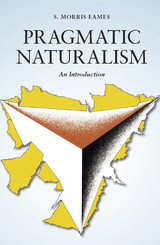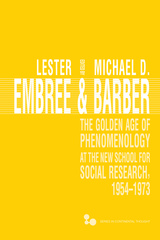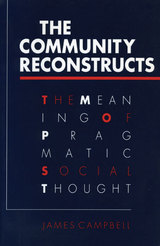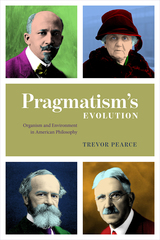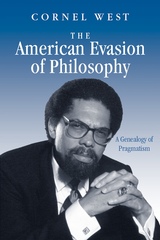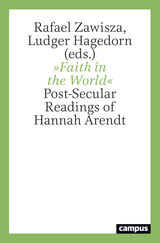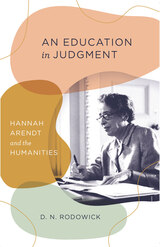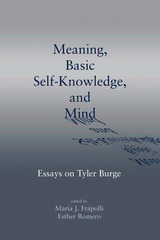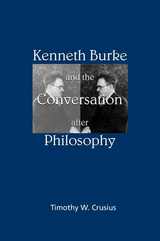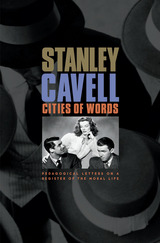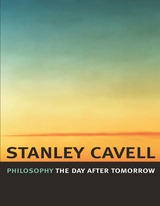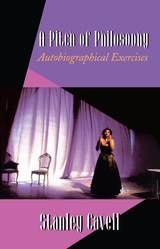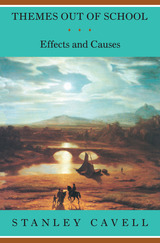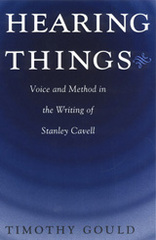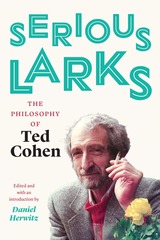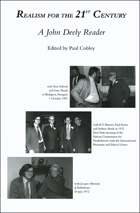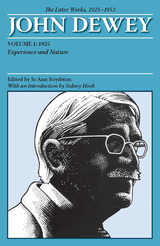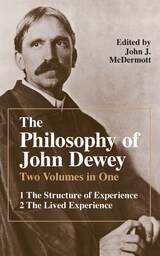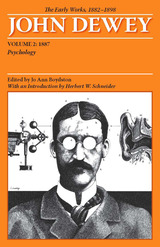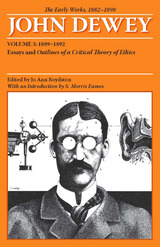“In this elegantly crafted book, Rodowick offers a powerful defense of humanistic education. These pages resound both with Rodowick’s own voice and with the voice of his constant interlocutor, Hannah Arendt, as he works out, in spirited agreement and thoughtful disagreement with her, a philosophically rich account (which is also a model) of the conversations on which the human faculty of judgment depends.”
— Patchen Markell, Cornell University
“An Education in Judgment is a challenging and substantial contribution to Arendt scholarship and a major new work of critical self-reflection on the humanities by one of the field’s leading proponents. Rodowick offers an illuminating reexamination of a cluster of texts written in the last decade of Arendt’s life, illustrating their interconnectedness, probing their difficulties, and arguing for their compelling contemporary relevance.”
— Thomas Bartscherer, Bard College
“For readers familiar with now longstanding laments about the ‘crisis of the humanities’, An Education in Judgment is a breath of fresh air. Drawing on Hannah Arendt's evocative writings on aesthetics and politics, Rodowick brilliantly charts a new way forward on well-travelled terrain. The fate of the humanities lies not in shoring up what is left of the canon but in developing wholly quotidian practices of critical thinking and judging. Rooted in the ordinary capacities of all citizens, the humanities become a world-building activity that takes account of plurality and different perspectives on a common world. Recognizing with Arendt the crucial importance of publicity, this book breaks free of narrow academic debates and offers a public vision of the humanities as an imaginative space for creating a new genre of the human, not as telos but as open-ended future.”
— Linda M. G. Zerilli, University of Chicago
“A fresh look at Arendt’s philosophy on thinking and judgment [applied] to the current ‘crisis’ in the humanities.”
— Choice
"In An Education in Judgment: Hannah Arendt and the Humanities, D.N. Rodowick draws on Hannah Arendt’s writings on judgment to make the case for a philosophy of the humanities grounded in self-reflection and interpersonal exchange. This innovative and plausible thesis of an education in judgment as the unifying element of the humanities will likely trigger fruitful debate."
— LSE Review of Books
“Arendt’s reflections on judgment, thinking, moral action, and political courage show that she was not a system builder and was not interested in offering axioms by which to rearrange the world. Yet in following her train of thought, we experience the illuminating force of her insights.”
— New York Review of Books
“The question of the value of education and research in the humanities is a perennial topic of academic debate . . . Few thinkers have done more to bring clarity to these debates than [Rodowick]."
— The Review of Politics
"Convincing and illuminating. [Rodowick's] defense of the political importance of an education in the humanities is a beautifully written and insightful attestation to the lasting political relevance and remarkable fecundity of Hannah Arendt’s legacy."
— Theory and Research in Education
"Rodowick seeks to show that Arendt’s analysis of judgment is not only a highly original but also a plausible reading of Kant, which goes against the dominant view in scholarship that Arendt committed quite a radical interpretative violence on Kant’s writings. This is not simply a question about the 'correct' interpretation of Kant but about the connections between thinking, which is an activity done in solitude and is essentially a dialogue of the 'two-in-one' within the self; judgment, which involves 'visiting' in our imagination the standpoints from which others see the world; and deliberation and action in the public sphere, which is done with others. . . . What emerges from this reading is a broader project Arendt was engaged with: the attempt to offer an alternative potential relationship between philosophy and politics."
— German Studies Review
